Capturing Our Movement with Activist and Photographer Ken Schles
Published Nov 5, 2025
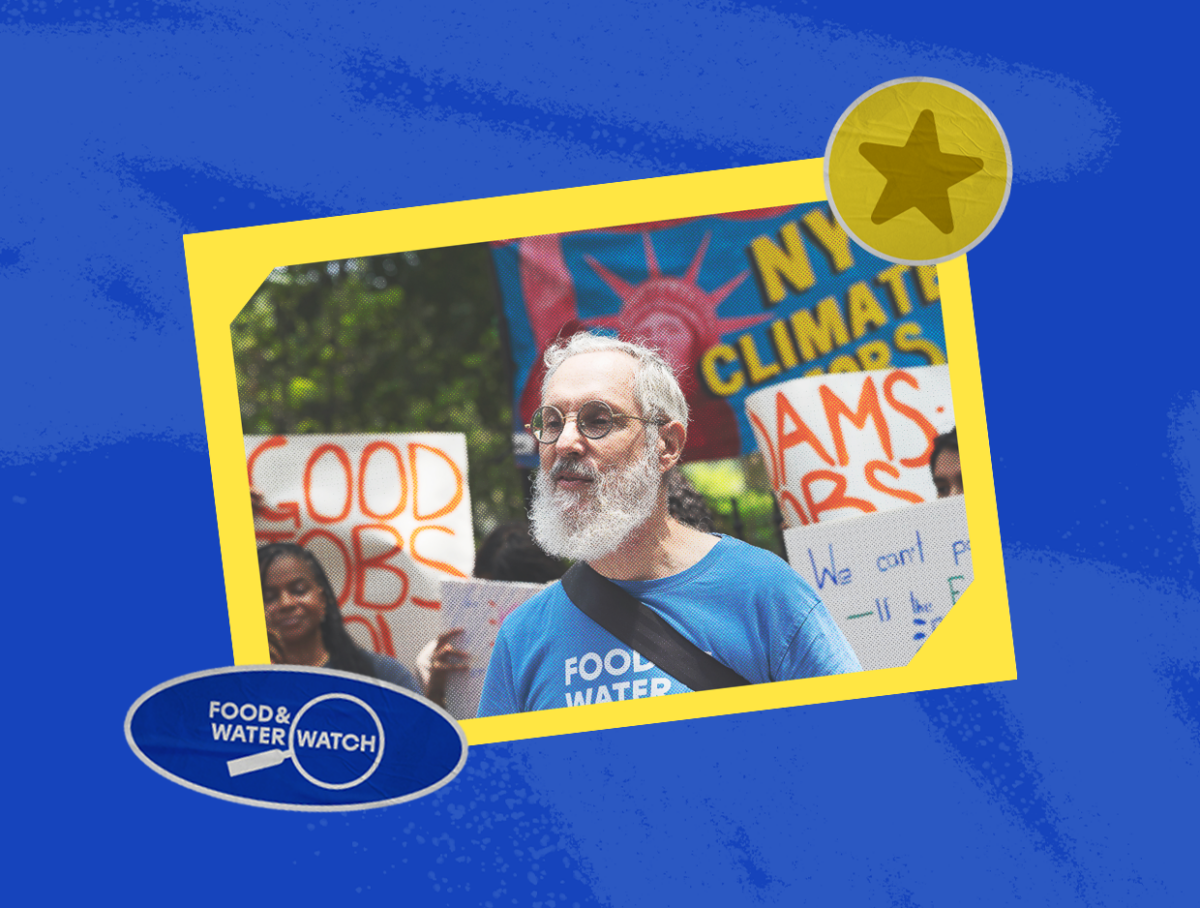
How might art inform activism, and vice versa? Learn more from Ken Schles, Food & Water Watch volunteer and award-winning photographer, in this interview!
Ken Schles’s work as a photographer and as an activist has taught him the same lesson — the power and possibilities that start with just showing up. We’re so grateful that Ken has chosen to show up with us.
As a tenant organizer, local food advocate, and climate activist, Ken has used his talents to bring meaningful change to New York City. He’s also been instrumental in Food & Water Watch victories like passing laws to phase out fossil fuels.
As Food & Water Watch turns 20 this year, we are proud to honor Ken and his work. For years, he has captured the story and spirit of our fights in New York. At the same time, he’s brought his heart and experience as an organizer to many winning campaigns.
“For a long time, I thought of Ken as an incredible activist who also happened to take powerful photos,” said Laura Shindell, Food & Water Watch New York State Director. “But now I think these talents are deeply connected. Ken sees the full picture. He can see the context and nuance of a moment, a movement, and a photo. That clarity is what makes him indispensable to this fight.”
Amid today’s unprecedented challenges, we look to artists like Ken to record and make meaning. His work doesn’t only speak truth to power; it also reminds us of our own strength. “His photos capture emotion, urgency, and the energy of our community like no one else can,” Laura said.
Earlier this year, we sat down with Ken to discuss how his photography and activism work hand in hand, the importance of this work, and how you can get involved. This interview has been edited for clarity and length.
You’ve been organizing for more than 50 years. What drives your passion?
My passion for environmental activism is rooted in my sense of justice and fairness. Having grown up in New York and seeing first-hand the inequities many are faced with, I realized that even though we live in a democratic society, there are systems of oppression that keep people from living their lives to the fullest. The climate crisis shows me — and makes quite apparent — how these inequities have institutionalized violence against all of us.
Through the work that I do with Food & Water Watch, we’re able to force government to engage in equitable solutions for everyone. I deeply believe we’re going to need to do that if we’re serious about tackling this climate crisis.
Before I was a climate organizer, I was a tenant organizer on the Lower East Side of Manhattan. When I started organizing, I realized there were a lot of laws on the books to protect us. But I also found that unless you push the powers-that-be, those laws — those rights, those protections — are easily abused. It’s up to us to make sure that good laws are enforced.
The less we engage our rights, the more easily they’ll be taken from us. The less we go up against power, the more power will move against us. I think this is a constant struggle. It’s up to us to hold power to account to ensure freedoms that are our right.
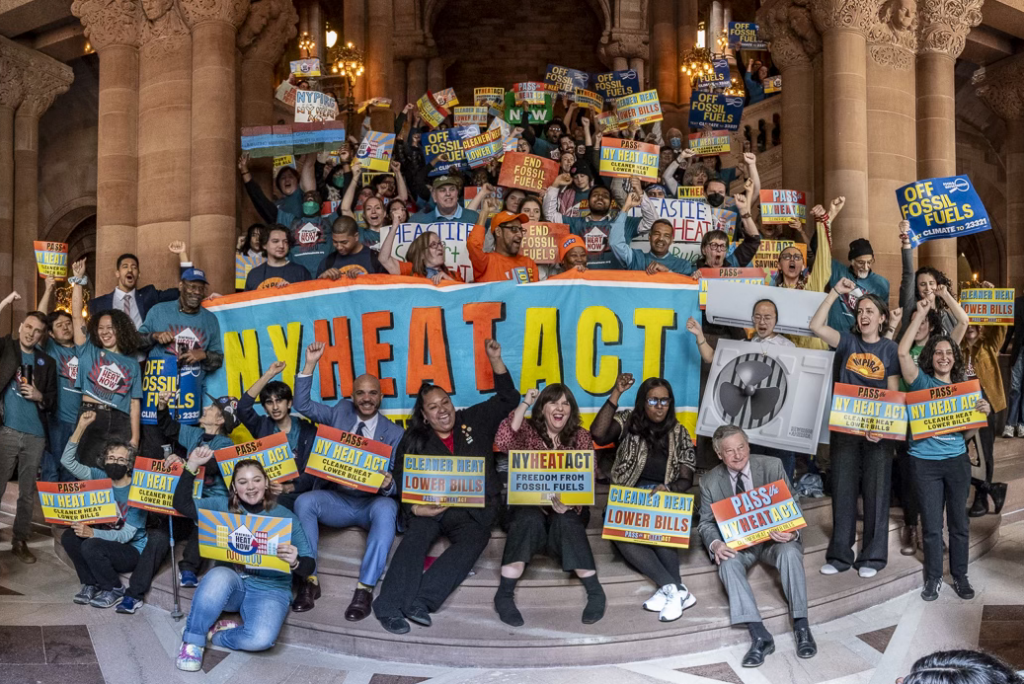
How did you first get involved with Food & Water Watch?
Food & Water Watch was playing a vital role in several climate fights I fell in with. I saw them taking the lead on many campaigns.
It was through the Williams NESE Pipeline fight, a $2 billion pipeline that was slated to go through Pennsylvania, through New Jersey, then up through New York harbor and past where I live in Brooklyn. I saw that Food & Water Watch had really effective strategies for organizing in coalition with other groups. That’s a unique ability, and that’s one of the reasons why I’m so enthusiastic about working with them.
Also, Food & Water Watch is not afraid to speak truth to power. They consistently push the envelope on what many groups think is politically possible because, from a scientific standpoint, they advocate for what needs to happen.
Over the years, I’ve worked on a lot of successful campaigns with Food & Water Watch; we have a lot of wins. Last year, we passed three laws in Albany! Their campaigns are strategic, targeted, and effective. They move the ball forward.
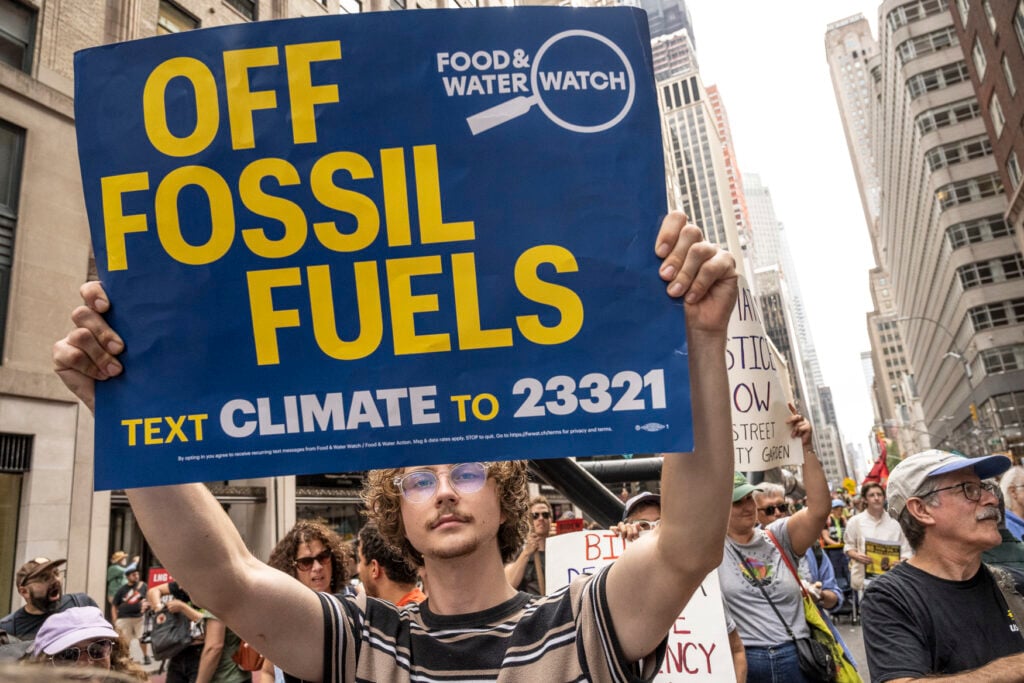
Do you have any favorite memories or actions?
I’ve been working with Food & Water Watch on a multi-year-long campaign on Local Law 97 here in New York. It’s a law to retrofit buildings (over 25,000 square feet) to go completely off of fossil fuels by the year 2050.
It was a major success to pass the bill. But a problem I’ve noticed — with this law and many others — is that passing a bill is one thing, but successfully implementing a law is another thing. Inevitably, there will be attempts by special interests to weaken or erode our climate laws.
Corrupt Mayor Adams, who has deep ties to the real estate industry, proposed administrative rollbacks to Local Law 97, and we were determined to fight any weakening of the law. So we did a planned blockade of City Hall, and during that blockade, some of us were arrested.
When the case came before a judge, the judge threw the case out. He said, “Here we have citizens who are getting together to try and get the Mayor to enforce our laws.” He emphasized, “We need more people like you!” and dismissed the case outright.
That’s certainly a favorite memory — to know that you’re up against these big institutions, billion-dollar corporate entities, or the seemingly impenetrable powers of government, and here we are, a modest group of us, literally fighting City Hall. You know that you’re doing the right thing, but then also to be vindicated in a court of law — that was a truly great feeling!
How is your artistic eye related to your activism? How do you choose which shots will make the biggest impact?
I think the purpose of art is to engage audiences and lead them on a path of seeing, in a deeply affecting, perhaps even a transcendent sort of way. It’s really important for me, as an artist, to bring people around to ideas and ways of seeing that I’m trying to share.
As activists, we need to do the same. We need to bring people around towards our ideas in a way that touches them deeply and touches them personally.
The past eight, nine years, I’ve been focusing on different activist movements with my photography. I try to give a sense of the passion that people have for the work that they’re doing (and that I’m doing), while informing people on the ways we can see, understand, and change the world.
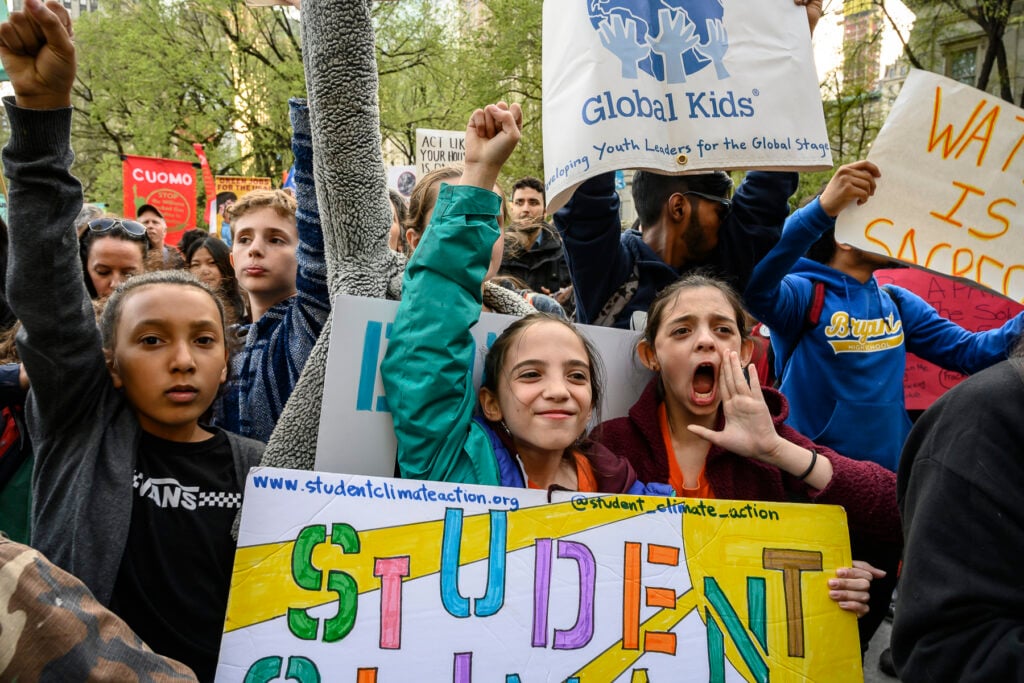
Why is it important to document these fights and Food & Water Watch’s work?
For one, it builds community. Through photographs, people get to see themselves in the fight — together, with each other. As an activist, you don’t usually see things from that perspective. You’re inevitably looking outward and don’t necessarily see how you fit in. I think it’s helpful for people to see that they’re part of a community that’s fighting together.
I think it’s also important to use images to project our fights out to other people in other communities. These images are often used in social media; to grow support around campaigns.
The images are also a projection of strength, signalling to those in power how dedicated and impassioned we are. I think it’s also important to create a historical record of what we’re doing.
So much of our world experience is predicated on prevailing assumptions. I think it’s critical to make images that are able to break through those bubbles. I think the language of art can do that and speaks to many people in many different ways.
What is your goal with your photographs? What do you hope people take away from your work?
For me, all photography is personal; my images show how I perceive the world. Photography allows me to take the vastness of the universe and flip it around and point out how the world presents itself to me at a very particular point in time. It allows me to project hierarchies of importance and meaning.
The more we’re able to share our perspectives, share our lives, share our understandings of the world, together, the more easily we can come to a larger understanding of not only what the world is, but what the world can be. Sharing perspectives keeps us aware of other realities and other possibilities.
The climate crisis can feel overwhelmingly large, distant, and impersonal. What makes this fight feel personal to you?
I originally came to the climate fight while I was on the board of my local CSA (community sponsored agriculture) group. Through that, I came to know an organic farmer from upstate New York who told me how the weather had been changing and how it was becoming less and less predictable.
Through that farmer, I came to understand how fragile our food systems are. I started making connections to scientific studies on climate change, and I was surprised at how our looming climate crisis was suddenly no longer looming, but really starting to affect us on a personal and day-to-day level.
We’re not fighting faraway things happening to other people. We’re fighting things that are happening to us, right now, within our own communities, within our own lives.
As a child growing up in New York City, I had asthma. We lived not far from Kennedy Airport, and I’m sure environmental pollutants were affecting me. I couldn’t play in the streets like other children because of my asthma.
As an adult, I came to understand that what I experienced as a child was a manifestation of climate pollution. I know now that fossil fuel pollutants are comorbidities for many diseases. Now I have cardiovascular disease and diabetes, putting me at particular risk.
We’re not allowed to live our lives to the fullest because of the climate crisis and because of all the pollutants from fossil fuels. I think, as a society, we’ve normalized many contemporary maladies whose roots lie in pollution and climate change.
Cancers, asthma, cardiovascular disease; too hot to go out, water too dirty to swim in… We too easily take manifestations of disease and other physical constraints for granted; accept them as somehow being “normal” — and our lives have become smaller as a result.
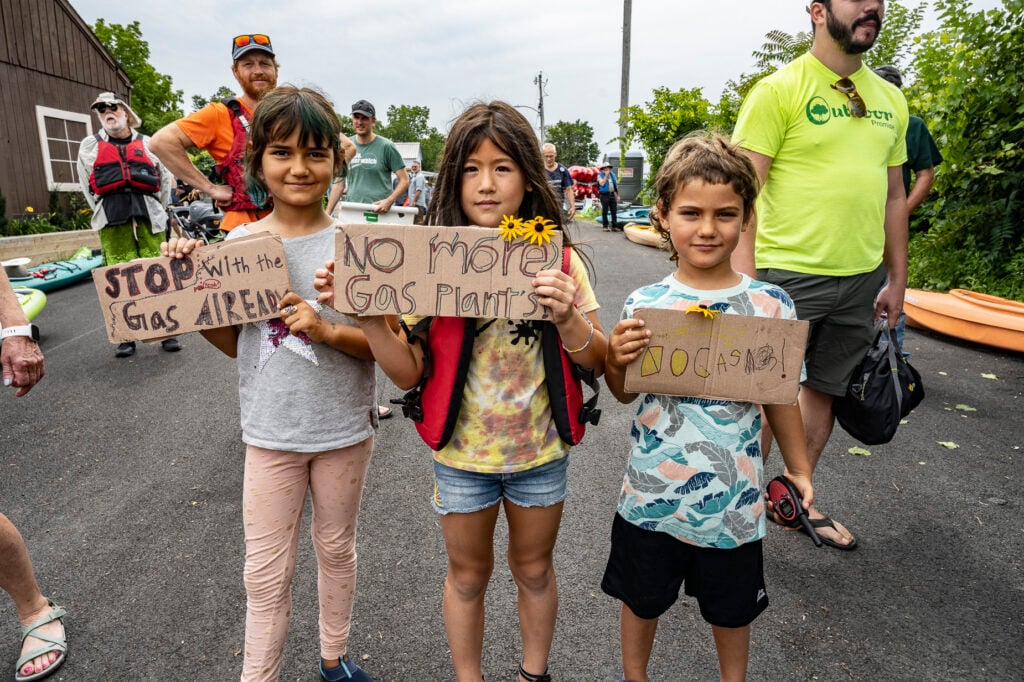
So much of the climate fight can be challenging. What gives you hope for the future?
What gives me hope for the future is reality.
Saying that reality gives me hope may seem counter-factual because we’re facing such a dire future. But reality is always richer, more nuanced, more complex than anything I could ever imagine.
Going into a difficult climate fight, victory may seem impossible, but I find — like with photography — by just showing up, the unanticipated can lead to unexpected positive outcomes. Something new and transformative inevitably results.
When I show up, possibilities present themselves, possibilities more exciting than anything I could ever imagine. Maybe it’s me, but reality often offers more positive potential, more opportunity than my fears or assumptions.
That, in itself, gives me hope. Facing reality is about showing up. That’s precisely what we have to do as activists. When we show up, when we actively take advantage of the possibilities reality presents? That will absolutely, positively enable us to transform the world.
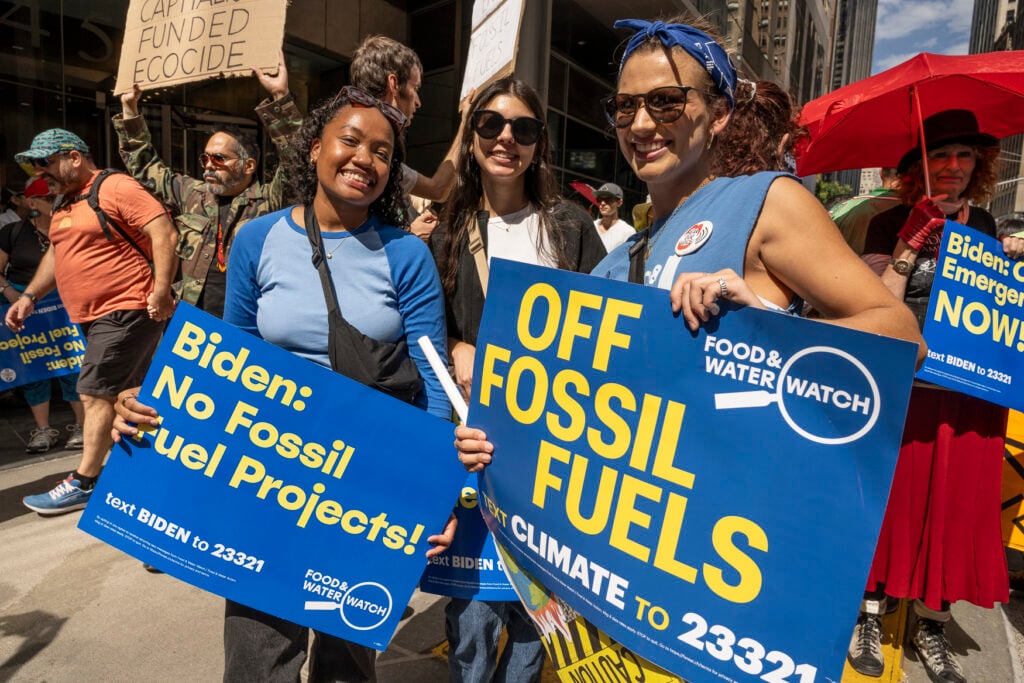
Why is it more important than ever to support and get involved with Food & Water Watch?
Food & Water Watch is critical at exactly this moment because they’re on the frontlines. Every day they show up, doing the work that needs to be done. We need to pass things legislatively, we need to be out in the streets — and there are very few groups that I know that can do both things effectively.
We need everyone in this fight. Our climate crises are deepening and happening with more and more frequency. There’s really no reason to be on the sidelines anymore. We can’t be on the sidelines anymore.
We all need to be engaged, and Food & Water Watch is, for me, a great place to be engaged. It’s a great community. The depth of knowledge that they’re bringing to the climate fight; their savvy… Their campaigns are critical to what needs to get done.
Watch Ken’s full acceptance speech at our annual benefit in January!
Enjoyed this article?
Sign up for updates.
TO TOP


